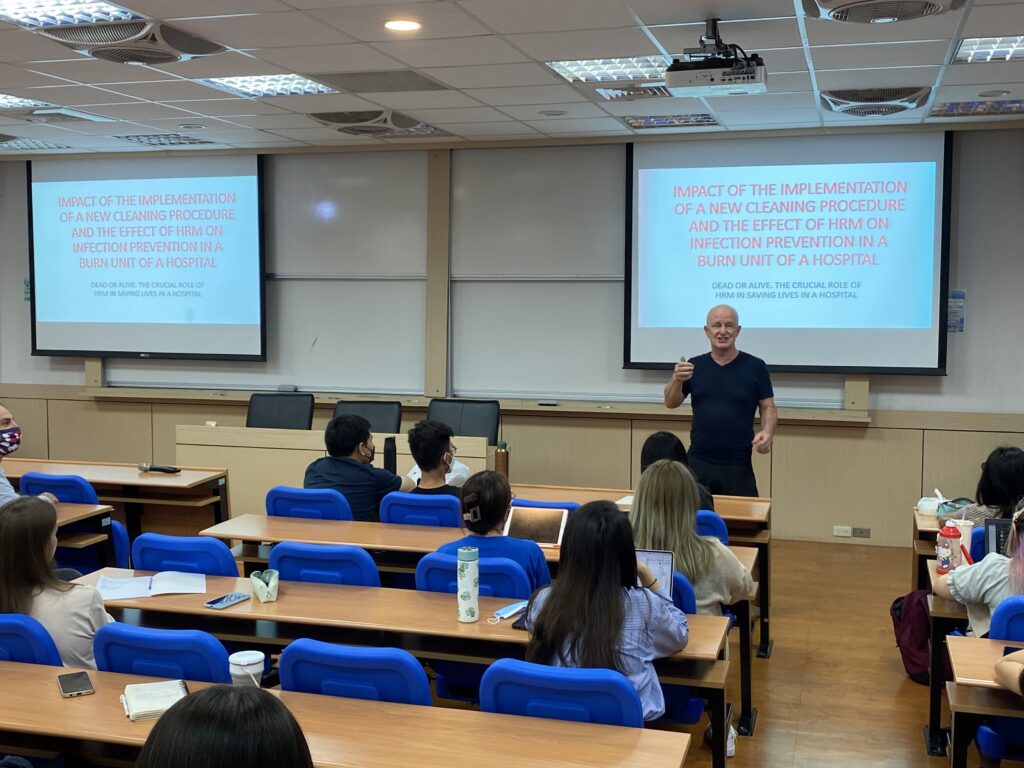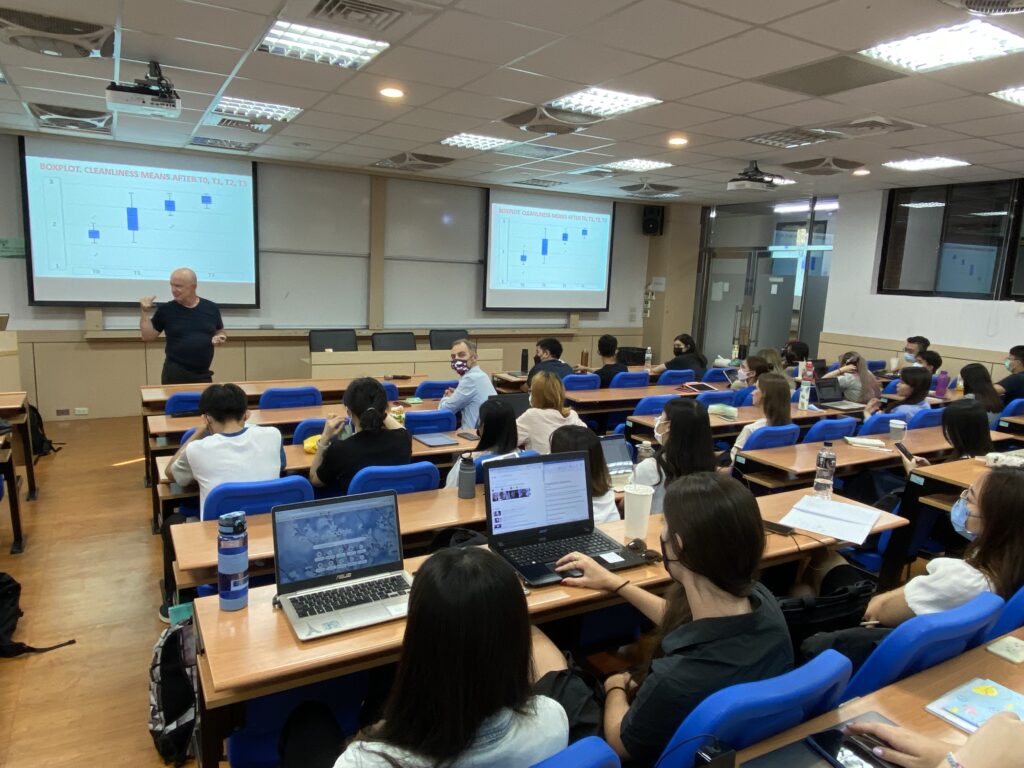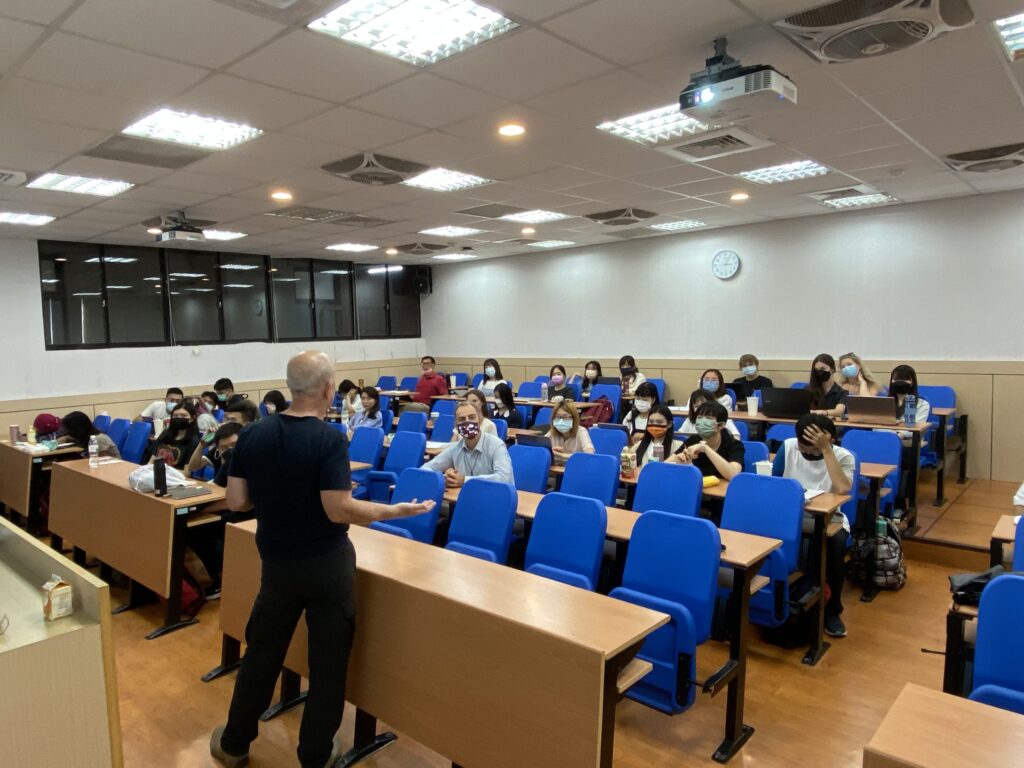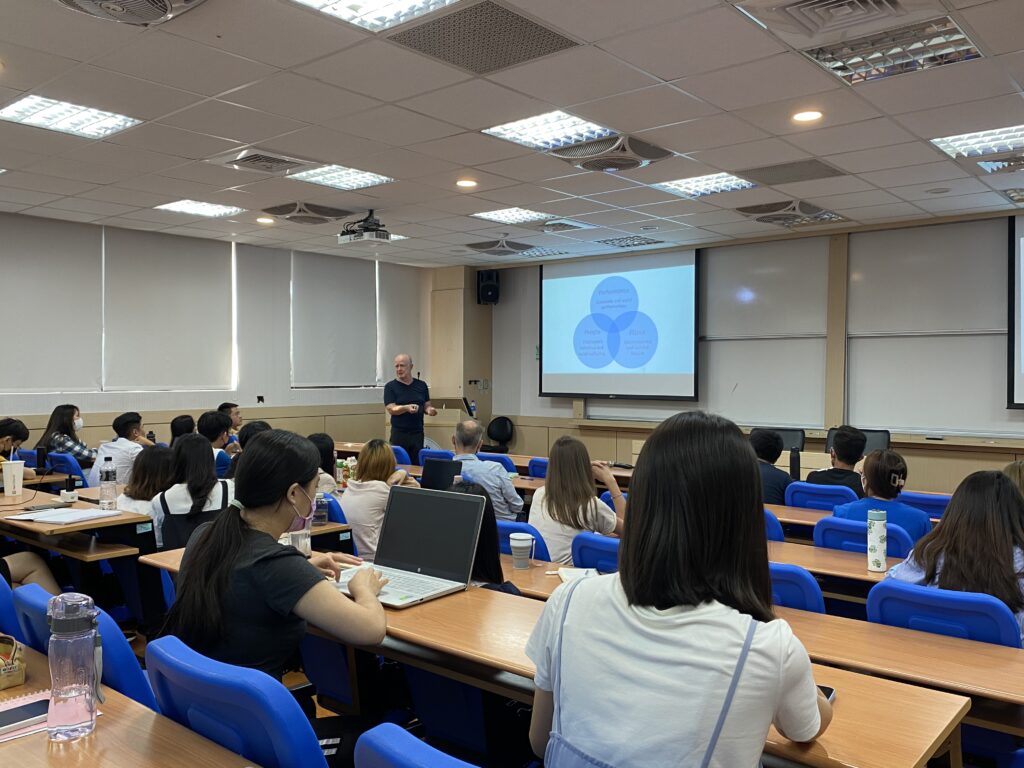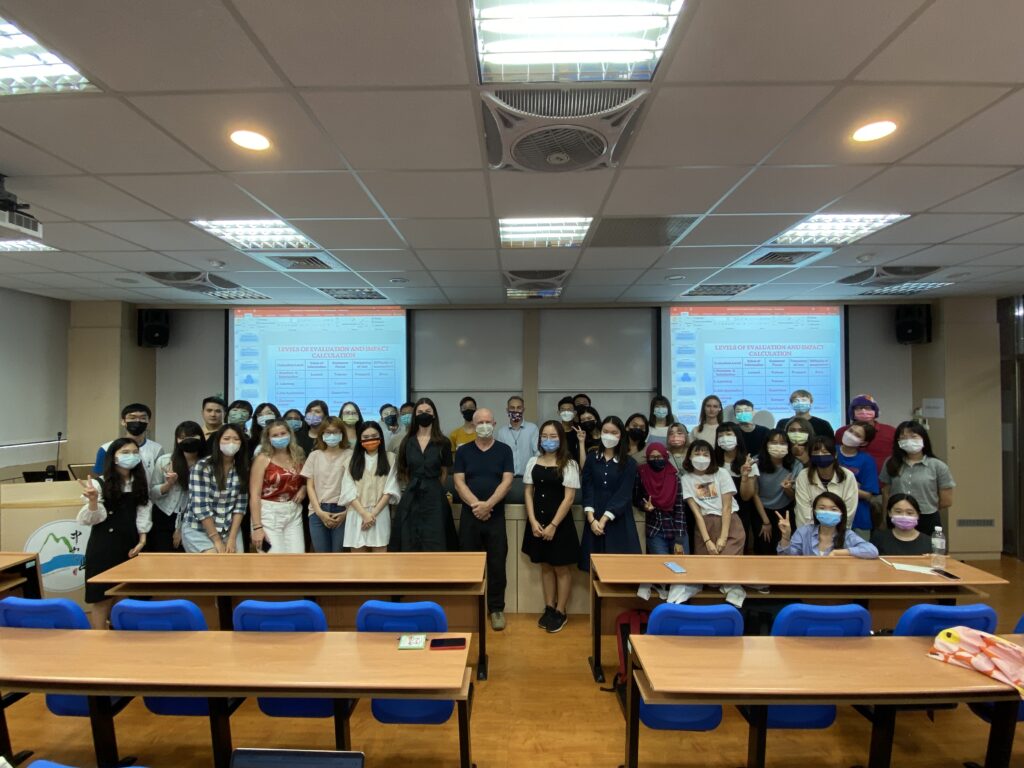On the 21st of October 2022, the Human Resource Management (HRM) class conducted by Professor François, under the Global Human Resource Management English MBA program, invited Dr. Alex Vanderstraeten from the Ghent University (Belgium), Faculty of Economics and Business Administration, as a guest speaker to talk about his research on “Impact of the Implementation of a New Cleaning Procedure and the Effect of HRM on Infection Prevention in a Burn Unit of a Hospital – Dead or Alive, The crucial Role of HRM in Saving Lives in a Hospital”.
Warming up the class with a quick introduction of his background, Professor Alex currently holds a Ph.D. in Sociology and two master’s degrees in Philosophy and Sociology. As someone who has been in the education industry for decades, He has taught several courses in both bachelor’s programs and master’s programs, such as Sociology, Introduction to HRM, Strategic HRM, International HRM, and HRM Metrics.
Professor Alex conducted his research in a hospital that focused on cleaning procedures performed by the doctor specialists, nurses, and cleaning staff. He adopted a similar concept to scientific management, with the process broken into four different stages of interventions, consisting of individual feedback, team-level feedback, etc., using UV marker and checking bacterial cultures as a means of measurement.
For students who aim to become HR professionals in the future, Professor Alex strongly encouraged them to have at least a basic understanding of statistics. As an HR professional, there will come a time when you have to look into a huge amount of data and perform a certain degree of data analytics to draw insights for management reporting. Through the use of analytics, you will be able to support your findings with something concrete, for example, the analysis of the effectiveness of training results on performance to your management, especially in a highly profit-driven work environment.
Raising an interesting question for the students, which is more important, money or health? Professor Alex shared that most of the current management research focused heavily on money. Through their research, it was found that money, or tangible rewards, has a diminishing return on employees. Money may be an important factor, but it starts to lose its effect on employees once they reach a certain level. This is when health, or issues like work-life balance, comes into the picture, especially in developing employee retention strategies.
Concluding his sharing, Professor Alex mentioned that he hopes the students’ takeaway from his sharing is that HRM is more than profit-making. Throughout his years of research, many of his findings point towards communication between the management and the employees, being the key to developing a successful and sustainable HRM. Instead of focusing on just performance and returns from investments like employee training results, HR needs to go beyond KPIs and dig deeper to see if there are any underlying issues, such as communication breakdown that may lead to poor employee performance.
